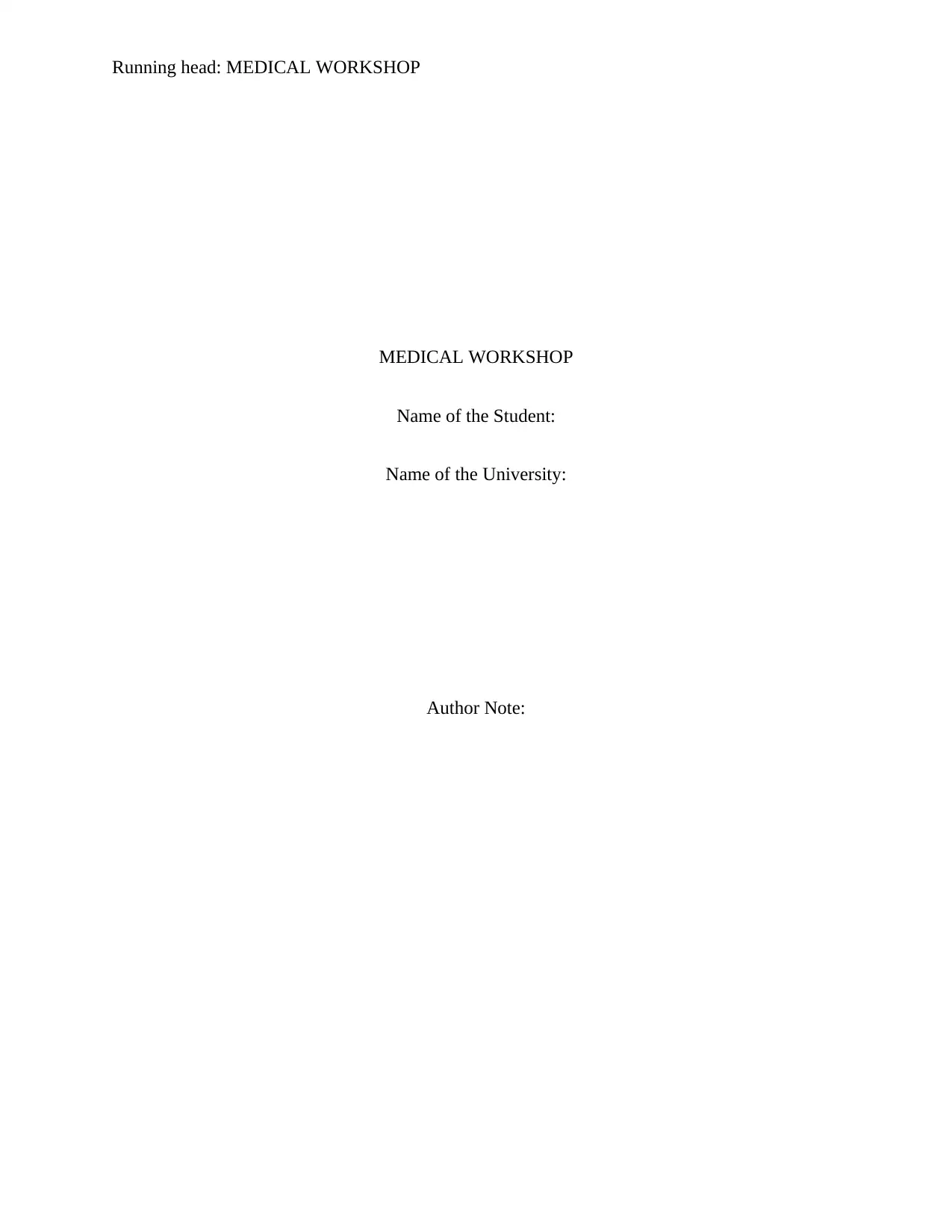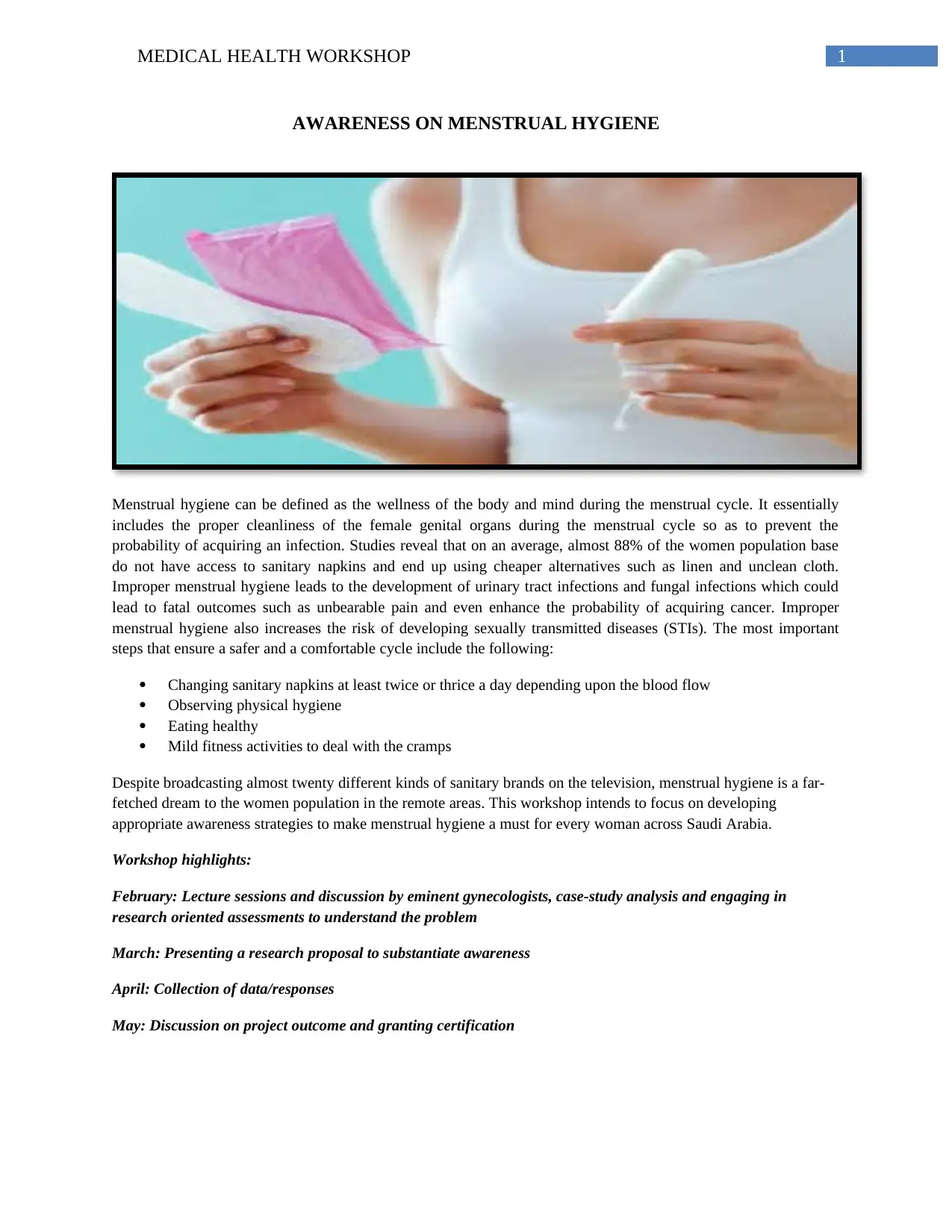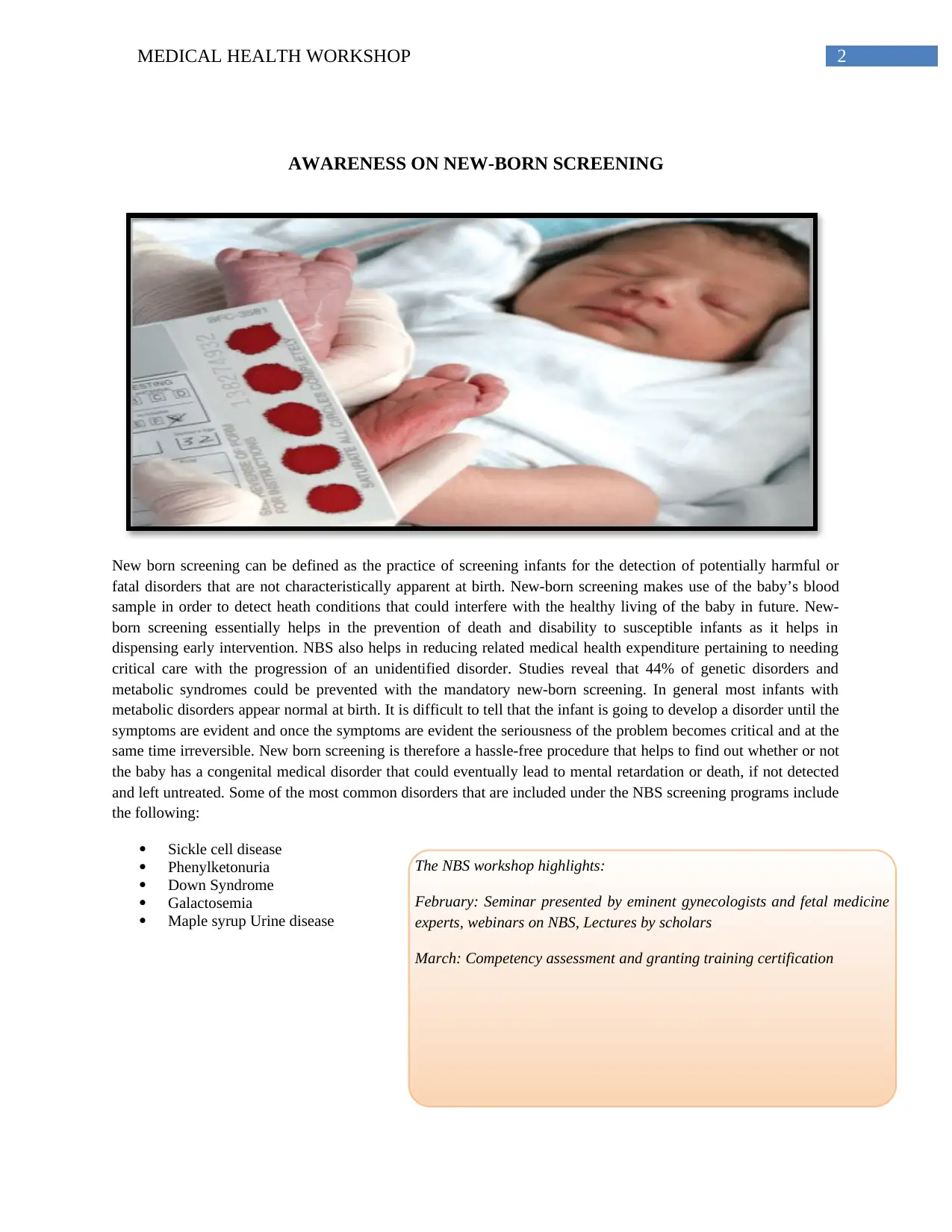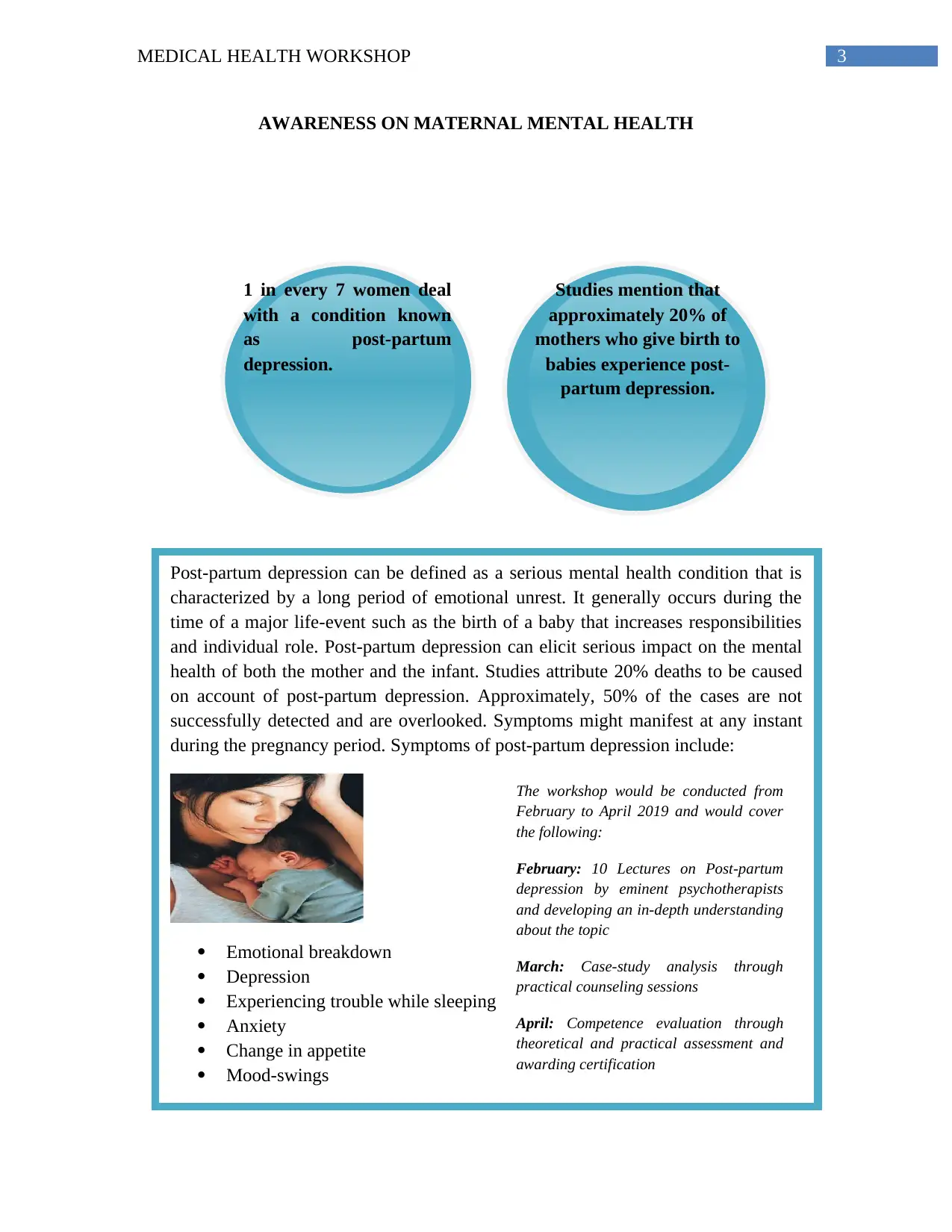Report on Medical Health Workshops: Promoting Women and Newborn Health
VerifiedAdded on 2023/04/22
|4
|813
|496
Report
AI Summary
This report outlines a series of medical health workshops focused on raising awareness about critical health issues. The first workshop addresses menstrual hygiene, emphasizing the importance of proper cleanliness and the risks associated with inadequate practices, aiming to develop awareness strategies for women across Saudi Arabia through lectures, case studies, and research. The second workshop focuses on newborn screening (NBS), highlighting its role in detecting potentially harmful disorders at birth and preventing long-term health issues through early intervention, featuring seminars, webinars, and competency assessments. The third workshop tackles maternal mental health, specifically post-partum depression, exploring its impact on both mother and infant, aiming to provide in-depth understanding and practical counseling through lectures, case study analysis, and competence evaluation.
1 out of 4







![[object Object]](/_next/static/media/star-bottom.7253800d.svg)